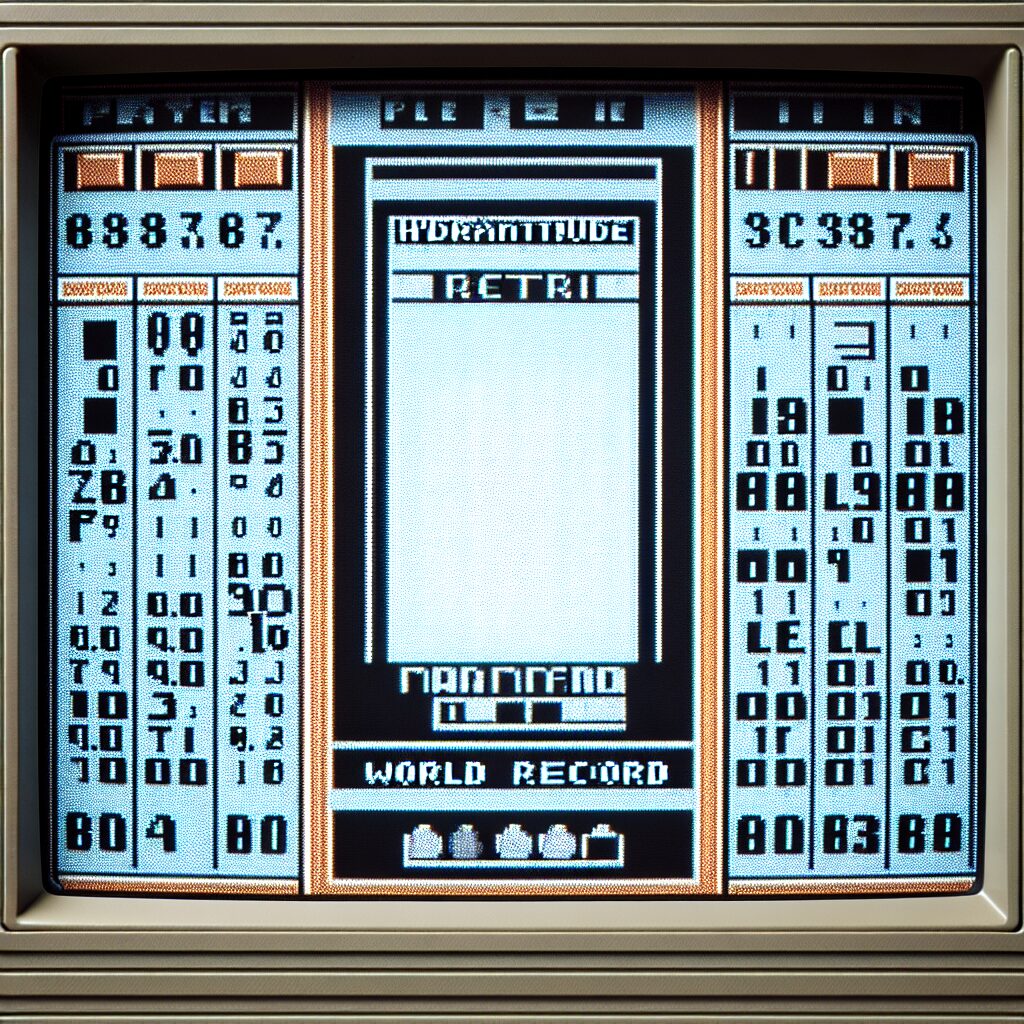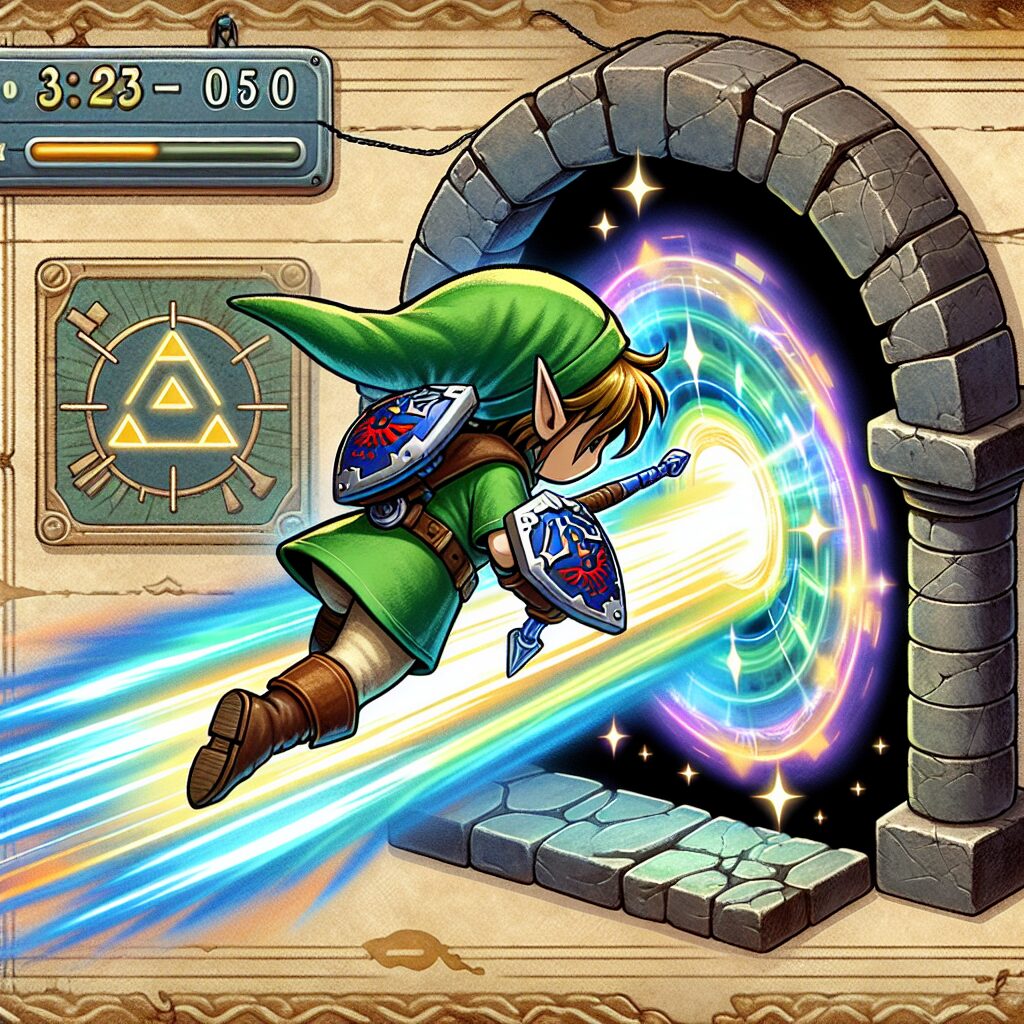Inaccurate Scoring Methods in the NES Tetris World Record
The NES Tetris World Record is a highly coveted title that many gamers aspire to achieve. It represents the pinnacle of skill and endurance in the world of competitive gaming. However, recent revelations have cast doubt on the accuracy of the scoring methods used to determine the world record holder. In this article, we will delve into the reasons why the NES Tetris World Record displayed the wrong score, and why it is crucial to rectify this error.
First and foremost, it is important to understand the scoring system used in the NES Tetris game. The game awards points based on the number of lines cleared and the level at which the player is currently playing. As the game progresses, the speed increases, making it more challenging to clear lines. This scoring system has been in place since the game’s inception and has been widely accepted as the standard for determining high scores.
However, the problem lies in the fact that the scoring system does not take into account the complexity of the moves executed by the player. In other words, it fails to recognize the skill and strategy involved in achieving high scores. This oversight has led to inflated scores and an inaccurate representation of the true world record holder.
One of the main reasons why the NES Tetris World Record displayed the wrong score is the prevalence of a technique known as “T-spin.” A T-spin is a move where a T-shaped Tetrimino is rotated into a tight space, creating a gap that allows for additional lines to be cleared. This move requires precise timing and exceptional spatial awareness, making it a highly advanced technique.
Unfortunately, the scoring system does not adequately reward players for executing T-spins. While it does award points for clearing lines, it fails to recognize the additional difficulty and skill involved in performing a T-spin. As a result, players who rely heavily on T-spins to achieve high scores are unfairly penalized and their true skill level is not accurately reflected in their scores.
Another factor contributing to the inaccurate scoring methods in the NES Tetris World Record is the lack of consideration for the speed at which the game is played. As mentioned earlier, the game progressively increases in speed as the player advances through the levels. This means that players who are able to maintain a high level of performance at faster speeds are at a disadvantage when it comes to scoring.
The scoring system does not account for the increased difficulty of playing at higher speeds, resulting in lower scores for players who are able to handle the increased challenge. This flaw in the scoring system not only undermines the achievements of these skilled players but also creates an unfair advantage for those who are able to achieve high scores at slower speeds.
In conclusion, the NES Tetris World Record displayed the wrong score due to inaccurate scoring methods. The failure to recognize the complexity of moves such as T-spins and the lack of consideration for the speed at which the game is played have led to inflated scores and an inaccurate representation of the true world record holder. It is crucial that these scoring methods are rectified to ensure a fair and accurate representation of the skill and achievements of Tetris players worldwide. Only then can we truly crown the rightful world record holder in the NES Tetris game.
Technical Glitches and Bugs in the Scoring System of NES Tetris
The NES Tetris World Record has long been a source of awe and inspiration for gamers around the globe. It represents the pinnacle of skill and determination, a testament to the human capacity for excellence in the face of seemingly insurmountable challenges. However, recent revelations have cast doubt on the legitimacy of this record-breaking achievement. It appears that the scoring system of NES Tetris contains technical glitches and bugs that have led to an inaccurate display of scores, ultimately rendering the current world record invalid.
One of the most glaring issues with the scoring system is the way it handles line clears. In NES Tetris, players are awarded points for clearing lines, with more points given for clearing multiple lines simultaneously. However, due to a glitch in the game’s code, the scoring system sometimes fails to accurately calculate the points earned from these line clears. This means that players who have achieved impressive feats of stacking and clearing lines may not be properly rewarded for their skill and strategy.
Another major flaw in the scoring system lies in its treatment of the infamous “Tetris” move. A Tetris occurs when a player clears four lines at once, a feat that requires careful planning and precise execution. However, the scoring system often fails to recognize and reward players for successfully executing a Tetris. This not only undermines the integrity of the scoring system but also diminishes the significance of this impressive maneuver.
Furthermore, the scoring system’s handling of level progression is deeply flawed. As players advance through the levels in NES Tetris, the game becomes increasingly challenging, with faster falling pieces and less room for error. However, the scoring system fails to adequately account for this increased difficulty. As a result, players who have managed to reach higher levels and overcome greater challenges are not appropriately rewarded for their accomplishments. This discrepancy in scoring undermines the competitive nature of the game and diminishes the achievements of those who have pushed the boundaries of what is possible in NES Tetris.
The implications of these technical glitches and bugs in the scoring system are far-reaching. Not only do they call into question the validity of the current world record, but they also undermine the integrity of the entire competitive Tetris community. Gamers who have dedicated countless hours to mastering the game and achieving high scores may find their efforts invalidated by a flawed scoring system. This is not only deeply unfair to these dedicated players but also discourages others from striving for excellence in NES Tetris.
In conclusion, the NES Tetris World Record, once hailed as a testament to human skill and determination, is now shrouded in doubt. The technical glitches and bugs in the game’s scoring system have led to an inaccurate display of scores, rendering the current world record invalid. The flawed handling of line clears, Tetris moves, and level progression undermines the competitive nature of the game and diminishes the achievements of dedicated players. It is imperative that these issues be addressed and rectified to restore the integrity of NES Tetris and ensure that future world records are achieved on a level playing field. Only then can the true potential of this iconic game be fully realized.
Human Error and Misinterpretation of Scoring Rules in the NES Tetris World Record
The NES Tetris World Record has long been a source of awe and admiration for gamers around the world. The game, released in 1989, quickly became a sensation, captivating players with its addictive gameplay and challenging levels. Over the years, countless individuals have strived to achieve the highest score possible, pushing the boundaries of what was thought to be humanly possible. However, a recent revelation has cast doubt on the legitimacy of the current world record score, leaving many to question the accuracy of the scoring system and the competence of those responsible for verifying it.
The controversy surrounding the NES Tetris World Record began when a keen-eyed gamer, who goes by the online handle HydrantDude, noticed a discrepancy in the scoring rules. According to the official guidelines, players are awarded points based on the number of lines cleared and the level at which they are cleared. However, upon closer inspection, HydrantDude discovered that the current world record holder had been awarded an unusually high number of points for clearing a single line.
This revelation sent shockwaves through the gaming community, as it called into question the integrity of the scoring system and the competence of those responsible for verifying the scores. How could such a glaring error go unnoticed for so long? Was it a simple oversight, or was there something more sinister at play?
As news of the controversy spread, gamers and experts alike began to scrutinize the scoring rules in an attempt to understand how such a mistake could have occurred. It quickly became apparent that the error was not the result of a technical glitch or a misinterpretation of the rules, but rather a case of human error. The individual responsible for verifying the world record score had made a simple but crucial mistake in calculating the points awarded for clearing a single line.
This revelation was met with a mix of frustration and disbelief. How could someone entrusted with the responsibility of verifying world record scores make such a fundamental error? It was a question that haunted the gaming community, leaving many to question the legitimacy of not only the current world record score but also the entire scoring system.
In the wake of the controversy, calls for a reevaluation of the scoring system and a thorough investigation into the verification process grew louder. Gamers demanded transparency and accountability, urging the governing body responsible for overseeing the world record to take immediate action. The reputation of the NES Tetris World Record was on the line, and it was up to those in power to restore faith in the system.
Fortunately, the controversy did not go unanswered. The governing body swiftly launched an investigation into the matter, vowing to rectify the mistake and ensure that such errors would not occur in the future. They acknowledged the gravity of the situation and promised to implement stricter guidelines and more rigorous verification processes to prevent similar incidents from happening again.
While the controversy surrounding the NES Tetris World Record may have shaken the gaming community, it also served as a wake-up call. It highlighted the importance of transparency, accountability, and constant vigilance in maintaining the integrity of competitive gaming. The incident may have been a setback, but it also presented an opportunity for growth and improvement.
As the gaming community eagerly awaits the outcome of the investigation, one thing is certain: the NES Tetris World Record will never be the same again. The controversy has forever changed the way we view and evaluate high scores, reminding us that even the most revered records can be called into question. It is a lesson that we must carry with us as we continue to push the boundaries of what is possible in the world of gaming.






